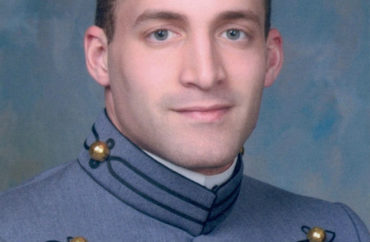Victim-Centered Investigations Create New Victims. Just Ask Innocent Accused Trent.
The West Point cadet beat sexual-assault charges that could have sent him to prison for life. Yet the military academy still kicked out Trent Cromartie on the eve of his senior year. The two-year investigation started with Cromartie being dragged to a military police station right after he completed a grueling, multi-day field training exercise. He was “dehydrated, sleep deprived, and hadn’t eaten,” yet was subjected to a five-hour interrogation. His accuser got a “victim advocate” and regular check-ins about her health and well-being, while he was left to fend for himself against a hostile interrogator who “used leading questions in an attempt to reshape my statements.” Witnesses at trial, including at least one female cadet, testified that the interrogator tried to coach them on answers. “He would tell me what to say” and “argue with me about my answer,” she said. Most outrageously, his accuser faced no consequences from West Point for perjury on the stand. Cromartie suffered from “severe depression and even suicidal ideations” throughout the investigation and for years after. He was presumed guilty in his cohort because of “the seriousness of the allegations.” You may remember seeing his story told in The Wall Street Journal. It’s only gotten worse for accused students in every institution of higher learning.
Cromartie is sharing his story again now with a bipartisan group of members of Congress, as part of a broad push by due-process advocates to sound the alarm about victim-centered investigations. They are seeking to put grassroots pressure on Attorney General William Barr to stop funding “Start By Believing” programs with a Change.org petition, which is approaching 1,700 signatures. The former cadet and other advocates held a Capitol Hill event earlier this month to highlight the training resources that instruct investigators to favor accusers and build a prosecution against accused students, regardless of the evidence. Being branded a rapist for not asking your partner verbally if you can switch sexual positions over the course of an encounter makes the accused student just as much a victim, yet training resources ignore their mental health.
Lawyer Eric Rosenberg said he was “a somewhat reluctant advocate” for accused students because of his prior work with a nongovernmental organization, that helped sex-trafficked women abroad. Rosenberg has been contacted by hundreds of parents seeking help for their accused college child and he shared one adjudication where he represented an accused student: The hearing panel rejected all 264 questions posed as cross-examination to the accuser and witnesses. The panel told him the answers to the questions wouldn’t change their minds. In another case, his client was blocked from asking questions in violation of school policy, including from a toxicology expert who contradicted the accuser. Adjudicators are being trained not to “retraumatize,” but the practical effect is that “common sense due process protections” are missing, he said.
thecollegefix -Greg Piper

